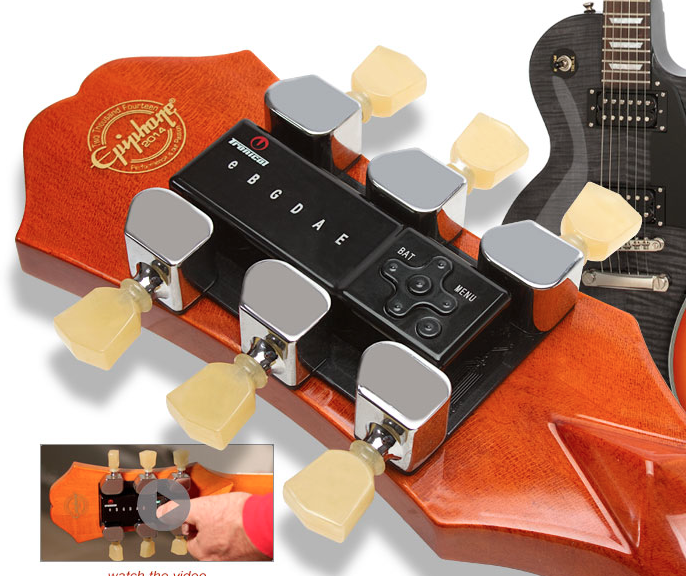I know that there are devices to quickly lower a guitar’s E string into drop tuning. Are there also devices or effects pedals to lower the entire guitar? There’s a lot of rock music in E-flat tuning (or lower), and it’s inconvenient to retune the whole guitar down a half step or more.
Is there a convenient electronic or mechanical gadget I can use for this instead? Essentially I’m looking for the opposite of a capo. I’ve heard that octave pedals might be able to accomplish this, but I’m not sure whether they are useful for smaller pitch shifts.
Ideally, I’d like a gadget that could also easily let me retune to A435 or A450 or whatever, and that would work well with an electric guitar or bass.

